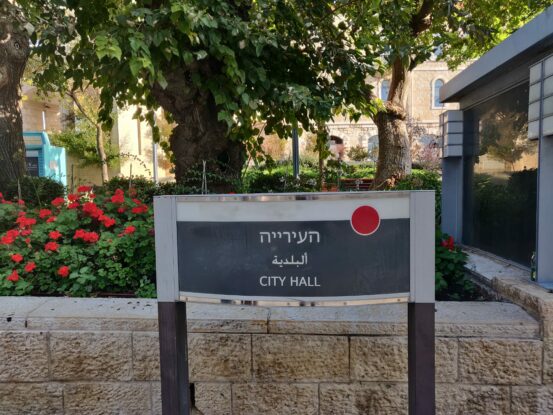The municipal property tax in Israel, known as “Arnona,” is levied by the local authorities in order to finance their activities and services. It is calculated according to a variety of parameters, including the purpose of the building, its size, the socio-economic status of the neighborhood, and more. These variables can result in an enormous difference in the total payment required from residents of the same city. In most cases, the tax is also collected for vacant properties, except in a number of special cases.
What is Arnona?
When buying a home in Israel, it is important to pay attention to the Arnona – the municipal tax imposed on local property holders by the authorities in order to finance their activities and services. It can reach tens of thousands of shekels per year.
The property tax rate for Israel real estate is determined by the city council at the beginning of each year, usually in conjunction with the municipal budget. Arnona is calculated based on various criteria, the two main ones being the area of the property and the type of use. The property tax levied on residential land is relatively low compared to the tax levied on office and commercial space.
Arnona is generally collected once every two months. In the case of rental apartments, the tenant who resides in the property is the one obligated to pay, unless otherwise agreed in the rental contract. Every few years, the local authority has the right to measure the property to make sure that the amount is updated to the current area, in the event of a renovation.
Is property tax the same for all areas in the same city?
Sometimes the property tax can vary significantly between neighborhoods within the same locality with different socioeconomic statuses; in luxury villa neighborhoods, municipalities tend to charge higher taxes than in lower class neighborhoods, even if they provide the same services to residents in both areas. Additional discounts are granted according to various social criteria, such as if the residents are retirees, single parents, or in a difficult financial situation. Another parameter that affects the amount of municipal property tax in Israel is the year of construction – the tax is higher for newer buildings than older ones.
The impact that these various factors can have on the final amount levied can be seen clearly through a comparison of the Arnona rates approved by the Tel Aviv municipality for 2020. For old apartments in the cheapest areas of the city, tenants will be required to pay NIS 38.87 per square meter per year. For a villa of more than 140 square meters in the expensive areas of the city, on the other hand, the municipality charges NIS 111.43 per square meter per year – 186% more than the cheapest neighborhood in the same city. According to this rate, the owner of a 200 square meter home in an expensive area of Tel Aviv will pay about NIS 22,300 in property tax each year.
This level of variance can also be seen in the Jerusalem Municipality, where the lowest rate is NIS 40.40 per square meter each year, while the highest rate is 180% more expensive, at NIS 113.22 per square meter. In the coastal city of Netanya, the property tax rate is slightly cheaper, ranging from NIS 35.78 to 82.65 per square meter.

In the city of Modi’in, on the other hand, there is no difference in the property tax rate between the various neighborhoods, and the difference in the amount of tax between the different types of properties is also minor. While owners of a standard apartment pay NIS 48 per square meter per year, owners of a penthouse apartment or detached house pay only 7% more, at a rate of NIS 51.36 per square meter, going up to NIS 60 for areas beyond 170 square meters. The discrepancy in Arnona rates in the city of Bet Shemesh is also negligible. For properties in the old neighborhoods, the property tax is NIS 41.26 per square meter, regardless of the type of property, and in new neighborhoods, it is just NIS 47.48 per square meter.
How does municipal property tax in Israel compare to other countries?
Every country has its own property taxation system, and there is no direct equivalent to Israel’s Arnona tax in the United States or the United Kingdom. In the United States, property owners pay an annual property tax calculated as a percentage of the value of the property. The tax rate varies between states, but the national average is 1.1%. New Jersey has the highest property tax rates among all states, with an average rate of 2.2% of the home value per year. In the UK, every home is placed into a ‘tax band’, based on a number of factors, such as size, layout, character, location, change in use, and value on 1 April 1991. Local authorities are able to set their own rates for each band and the Council Tax is set accordingly.
In Israel today, the average purchase price for an apartment is NIS 1.6 million, so if each property owner paid the average US rate of 1.1% of the value of the property, it would come to approximately NIS 17,600 per year. However, the average municipal property tax in Israel is significantly lower, ranging from NIS 4,000 to NIS 8,000 per year, in most cases. Housing prices in Israel are high, when compared with international prices, so any attempt to calculate property taxes in direct proportion to value would lead to significantly higher rates than the average in the United States.
However, some claim that the residential property tax in Israel is relatively cheap, and consequently, does not cover the expenses for all of the services provided by the municipality, including cleaning, gardening, education, welfare, and more. The municipalities glean most of their income from the property tax on businesses and commercial areas – which is several times higher than the residential property tax. However, not all localities have commercial areas, especially in small towns and the peripheral regions of the country, which has a negative impact on the economic welfare of the municipality and the level of services it is able to provide to its residents.
Do apartment owners need to pay Arnona on empty apartments?
One of the common questions asked by foreign residents with property in Israel, some of whom visit their apartments for only a month or two each year, is whether they are obligated to pay the property tax even if the apartment sits empty most of the time. The basic answer is yes; the tax is levied even when the apartment is empty. However, there are a number of exceptions to this rule.
First, an empty, brand new property can be exempt from property tax for 12 months. Whether one purchased an apartment from a contractor or built it himself, if he is the first owner of the property and does not use it, he is entitled to a 100% discount on property tax for the first year.
For apartments that are not new, there is a regulation that allows a discount for up to six months for “a property that is completely empty of any person and object, and is not being used.” The discount is given only once for the entire period of ownership in the property, meaning that the same owner will not be able to employ this discount twice. In order to receive the two discounts described above, one must contact the municipality and fill out the relevant documents, and the municipality may conduct an audit of the property before granting the discount.
The third case in which no property tax is collected is when it comes to a destroyed property that is deemed uninhabitable. In such a case, the property owner is entitled to a total exemption from property tax for three years, followed by five years at a reduced rate.
What is meant by a “ghost apartment”?
During the past decade, the Israeli government, together with a number of local municipalities, attempted to reduce the number of apartments that are empty most of the year (known in Israel as “ghost apartments”), by doubling the property tax on them. This was done after the social protest of 2011, which focused, among other things, on the high prices of apartments in Israel, as well as the high number of apartments purchased during those years by non-residents which led to an increase in the demand for apartments in Israel.
In an attempt to reduce the holdings of non-residents in apartments in Israel, the government in 2013 defined a “ghost apartment” as an apartment that was not used for at least 9 months a year, and enacted a temporary provision allowing local authorities to collect double property tax from those apartments. In Tel Aviv, Jerusalem and Haifa, decisions were indeed made following the new law to increase the collection of ghost apartments. However, the implementation of the new law was deficient and in practice, the increased taxation was only imposed on a small number of apartments. A study published by the Knesset Research Center in April 2019 found that out of a potential of about 146,000 empty apartments in Israel, double taxation was imposed on only 5% of the apartments. This is partly due to the difficulty of defining what a ghost apartment is, the difficulty of proving that it is indeed such, and other obstacles. The law was not renewed after a three-year period and is therefore no longer in effect.





